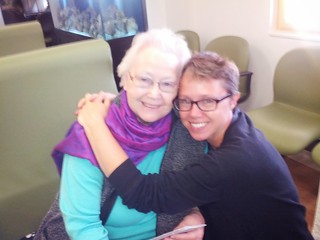the one with the politics
I’m gonna assume that if you stumbled across my tiny angry queer blog somehow and didn’t run away screaming, we’re not in violent disagreement about Right Versus Wrong or Should Babies Be In Prison or Are Black Or Indigenous Or Trans People Human or any of the other hotly disputed issues of the day. I started calling my members of Congress the day after the 2016 elections. I’ve written fistfuls of postcards. I got so active in my local Indivisible group, they eventually drafted me into leadership. My first order of business was partnering with SwingLeft to canvass in our local GOP-held Congressional district, CA-10.
CA-10 stretches from the foothills of Mt Diablo right across the Central Valley to the Sierra. It’s all of Stanislaus and a big chunk of San Joaquin counties. The big towns are Tracy and Turlock, Manteca and Modesto; the big industries are agriculture and being a bedroom community for Sili Valley. You can get from Tracy to San Jose in just under two hours on the Altamont Corridor Express. My first impressions of Tracy, back in January, were grim. Much of the town was carved out of cow-pastures in the 1990s, that nadir of domestic architecture where success equalled building a beige cube to occupy the maximum municipally permitted volume over its lot. My first day, I canvassed with a clipboard in a depressing mall on the suburban/rural border, complete with flashbacks to my adolescence as a supermarket cashier in same. It was rainy and cold. I talked to two Trump voters, one of them a woman. It was awful.
Things got a lot better when I started taking cronies from SF and knocking on doors. Even the Trump voters were pleasanter, and our fellow Dems are family. Tracy is much nicer in the sunshine, and it’s sunny most of the year. The very significant upside of those cow-pasture subdivisions is that the gardens are glorious. The most memorable was a little bungalow that had ripped out its lawn and replaced it with gorgeous native meadow plants – talk about life goals – but everyone had something amazing: vigorous bougainvillea or California poppies, jade plants spreading into whole jade trees, mature redwoods, tree ferns from my island home, and the wildlife to go with them: cheery, chatty murders of crows, raptors soaring on thermals, hummingbirds buzzing among the fuchsia, SO many butterflies.
I got fond of the drive out, through Crow Canyon with all its mustard plants, over the Altamont pass. (Less of the drive home through the traffic in the Maze.) I recruited enough folks that I had to drive a minivan to hold ’em all! Then I broke my leg. My good friend the esteemed Jack took over the minivan, and reports that almost 200 people showed up on Saturday – we used to get 20-30. I’m gonna miss the big finish in person, but today I signed up for texting all over the country. Man, has the technology ever moved along! It’s a far cry from Hillary HQ. I’m with Red2Blue, a class operation focused on cleaning lists and setting us up for success in future campaigns. We’re using Slack, GDocs and Relay. We survey. We sweep.
Some days, I can almost convince myself there are gonna be future campaigns.
But whether we win or not – and not seems likely; I’m not sure we can retake the Senate even if we retake the House – I’ll keep doing this. I should’ve been doing it all along. It’ll take more than electoral disasters or broken bones or rapidly collapsing democracies to stop me. I’ve been training for the resistance all my life.
